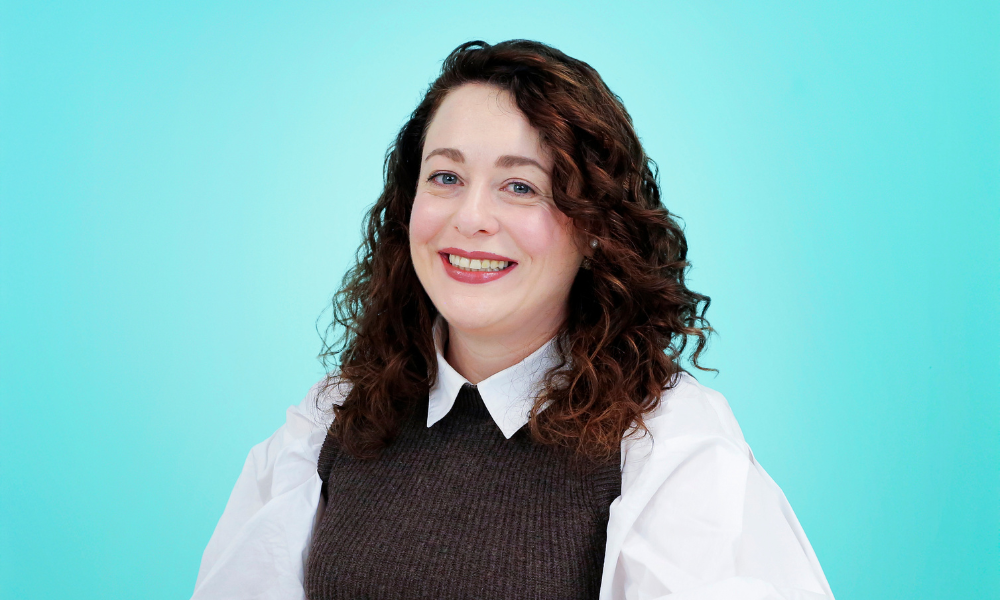A legal career shaped by crisis and transformation demands sharp risk assessment and the ability to cut through complexity. Rachael Glassman lays bare that reality, reflecting on her path from the film industry to in-house counsel at Canadian tech companies.
Glassman’s journey started in film, with a decade in production and rights acquisition before law school. “I worked as a production assistant on a couple Canadian films and lived in New Zealand for a year [and] worked on some films there but I pretty quickly realized that that was not the lifestyle for me,” she says.
Entering law school at 30, she approached the profession with intent. “I spent a lot of time, in the year between taking the LSAT and actually starting law school, interviewing a bunch of lawyers … It became clear to me pretty quickly that if I was going to go to a law firm, it was only going to be for summering and articling and that I was interested in going in-house as quickly as possible,” she says.
Landing at Wattpad during an explosive growth period, Glassman found herself in a role that was anything but routine. “They needed extra legal help but couldn’t afford to bring on a full lawyer at that time. So, I stayed on part-time during my third year,” she says. But she was quickly thrown into the deep end, where a data breach, the pandemic, and an acquisition collided almost immediately. “Off the basis of that, as soon as the acquisition happened, they freed up the budget and knew that they could expect to have enough work for someone. And because I’d already been working with them, they just pulled me along as an articling student,” she says.
Her work at Wattpad spanned content acquisition, product counsel, and compliance, all while the company expanded into new markets. “Wattpad is a social storytelling platform, so it’s a global platform with 90 million users where people can write stories and anyone can read them, respond to them, comment on them. It’s a really great community, especially … for young women,” she says.
Glassman has made a deliberate shift from content to technology throughout her career. “When I finished articling, my GC gave me a choice of continuing on and just doing entertainment or going more on the tech side of the company and being more of a general in-house counsel. And at that time, I chose to do the tech side because I thought it was more interesting … and that it would have more career growth opportunities,” she says.
That decision set her up for her current role at Solink, a Canadian tech company focused on video security and AI-powered analytics, which she began in late 2024. “Solink is a software as a service company, but we also call ourselves an edge company because we do sell hardware as well to enable our software to work,” she says.
The legal landscape at Solink is markedly different from Wattpad, especially in its embrace of AI. Wattpad “were mostly concerned about the use of generative AI. They didn’t want a bunch of stories to fill up the website that were not valuable and generated by AI. So, they had an almost anti-AI policy. Solink is really embracing AI. We have AI tools that are built into our product, and I get to use them day to day as well to help me with my legal practice,” she says.
For Glassman, this means reviewing vendor contracts with a new lens – scrutinizing how AI tools process customer data and whether those uses align with international privacy standards. “If there’s no customer data involved and it’s just a tool for helping us write our marketing, that might be a little less risky,” she says, but when sensitive information is at stake, the bar for risk tolerance rises sharply.
Glassman’s approach to risk is pragmatic, shaped by the absence of clear legal frameworks for AI in Canada. With no Canadian AI legislation, she relies on international frameworks and her own judgment to guide decisions. She takes the most cautious approach possible, prioritizing safety and strict compliance in the absence of clear local laws. This mirrors a broader trend among Canadian in-house counsel, who increasingly look to the EU and UK for regulatory guidance as they navigate emerging technologies and global compliance demands.
Her risk calculus extends beyond AI. Glassman describes her approach as a “game of risk,” weighing each contract and vendor by how much exposure they create. She says the company is far less willing to take chances when customer data is involved, but more flexible with lower-stakes tools like marketing software. This balancing act – between innovation and risk – has become a defining feature of in-house legal work, especially in Canada’s tech sector.
For lawyers considering a move in-house, Glassman’s advice is to broaden your horizons. “It’s important to want to work with people who are not lawyers. I think when you work at a law firm, you’re surrounded by lawyers all the time. You’re used to a certain way of thinking through a problem and people asking a question, and that’s just not how it works in-house…You have to want to be curious.”
She says her team does not see itself as the “Department of No,” but instead as “the friendly face of law.” That philosophy is increasingly common among Canadian legal departments, where the role of counsel is shifting from gatekeeper to strategic partner.
Glassman’s early career at Wattpad was packed with an acquisition, IPO, data breach, and pandemic-related layoffs. “All of the big things that you never want to have to happen in your company all happened within the first three years of my practice,” she says. For Glassman, navigating upheaval isn’t just part of the job – it’s the expectation. She’s built her legal approach around anticipating change, ensuring her teams are prepared to handle whatever comes next.




